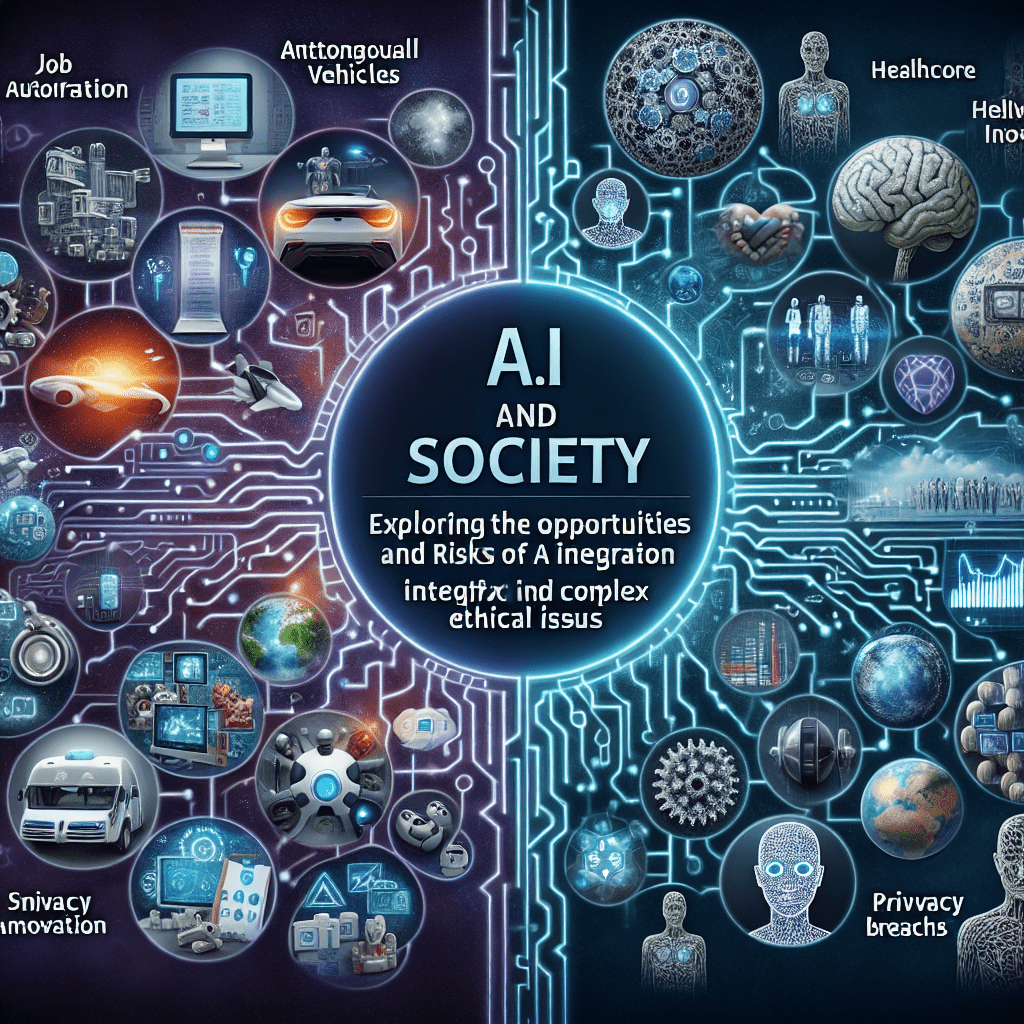Artificial Intelligence (AI) has become an integral part of society, with its applications ranging from autonomous vehicles to virtual assistants. While AI has the potential to revolutionize industries and improve our quality of life, there are also concerns about the risks associated with its integration into society. In this article, we will explore the opportunities and risks of A.I. integration and how it is shaping our future.
Opportunities of A.I. Integration
One of the key opportunities of A.I. integration is its ability to automate repetitive tasks, freeing up human resources to focus on more creative and strategic activities. This can lead to increased productivity and efficiency in various industries, such as manufacturing, healthcare, and finance.
AI-powered technologies also have the potential to improve decision-making processes by analyzing vast amounts of data to identify patterns and trends that may not be apparent to humans. This can lead to more informed and accurate decisions in areas such as investment planning, disease diagnosis, and disaster response.
Risks of A.I. Integration
Despite the numerous benefits of A.I. integration, there are also significant risks associated with its widespread adoption. One of the primary concerns is the potential for AI algorithms to perpetuate and even amplify existing biases in society, leading to unfair treatment of certain groups or individuals.
Another risk is the potential loss of jobs due to automation, as AI-powered technologies can perform tasks more efficiently and accurately than humans in many cases. This can lead to unemployment and economic inequality if adequate measures are not taken to retrain displaced workers and ensure a smooth transition to a more automated society.
Impact on Society
The integration of A.I. into society has the potential to fundamentally change the way we live, work, and interact with each other. From autonomous vehicles to personalized healthcare, AI-powered technologies have the potential to improve our quality of life and create new opportunities for innovation and growth.
However, the risks associated with A.I. integration cannot be ignored, and it is crucial for policymakers, industry leaders, and the general public to work together to address these risks and ensure a fair and ethical implementation of AI technologies. By fostering collaboration and open dialogue, we can harness the power of AI for the benefit of society and minimize its potential negative impacts.
Conclusion
As we continue to integrate AI into society, it is important to carefully consider the opportunities and risks associated with this technology. While AI has the potential to revolutionize industries and improve our quality of life, it also poses risks such as bias, job displacement, and ethical concerns. By working together to address these challenges, we can harness the power of AI for the benefit of society and create a more inclusive and equitable future.
FAQs
Q: What are some examples of AI-powered technologies in society?
A: Some examples of AI-powered technologies include virtual assistants like Siri and Alexa, autonomous vehicles, recommendation systems like Netflix and Spotify, and facial recognition software.
Q: What are some of the ethical concerns surrounding AI integration?
A: Some ethical concerns surrounding AI integration include bias in algorithms, job displacement due to automation, and privacy violations through data collection and surveillance.
Q: How can society ensure a fair and ethical implementation of AI technologies?
A: Society can ensure a fair and ethical implementation of AI technologies by promoting transparency in algorithms, fostering diversity in AI development teams, and establishing regulations to protect privacy and prevent discrimination.
Quotes
“The question of whether a computer can think is no more interesting than the question of whether a submarine can swim.” – Edsger W. Dijkstra


